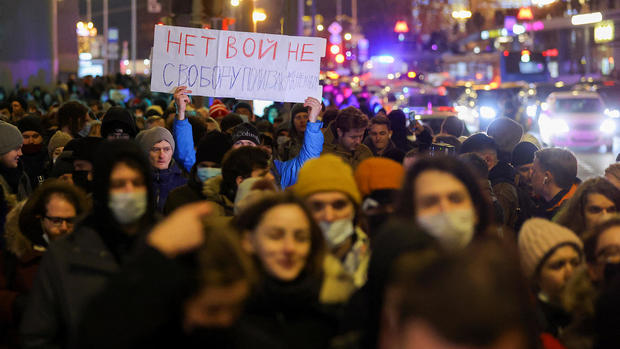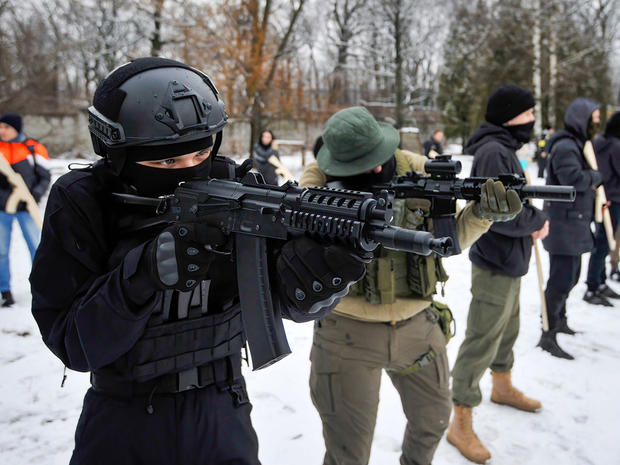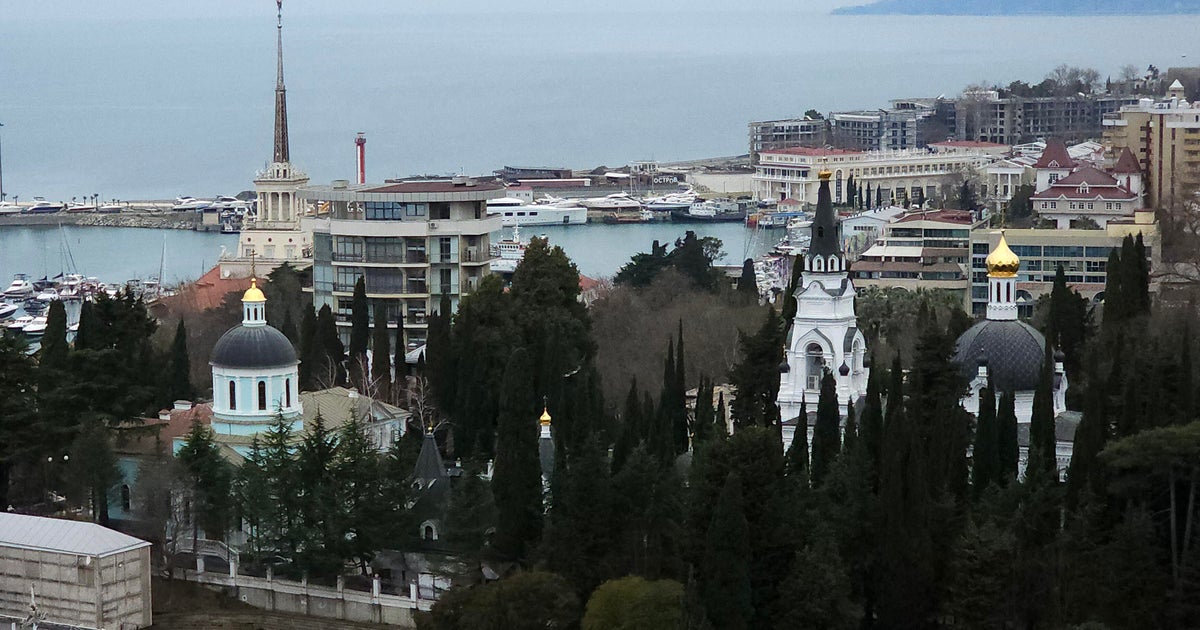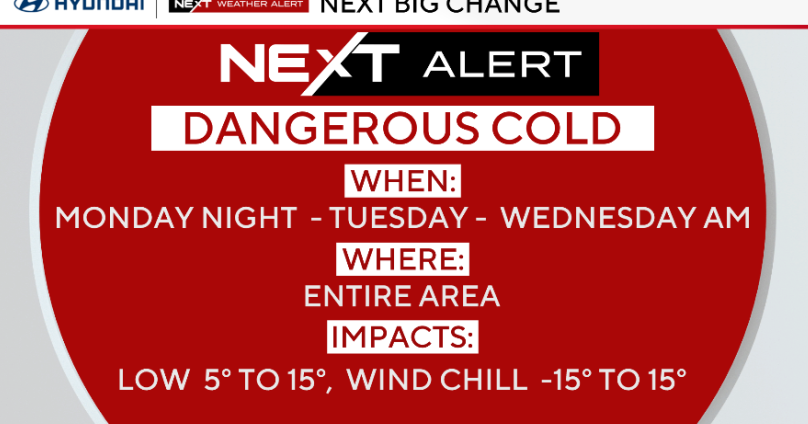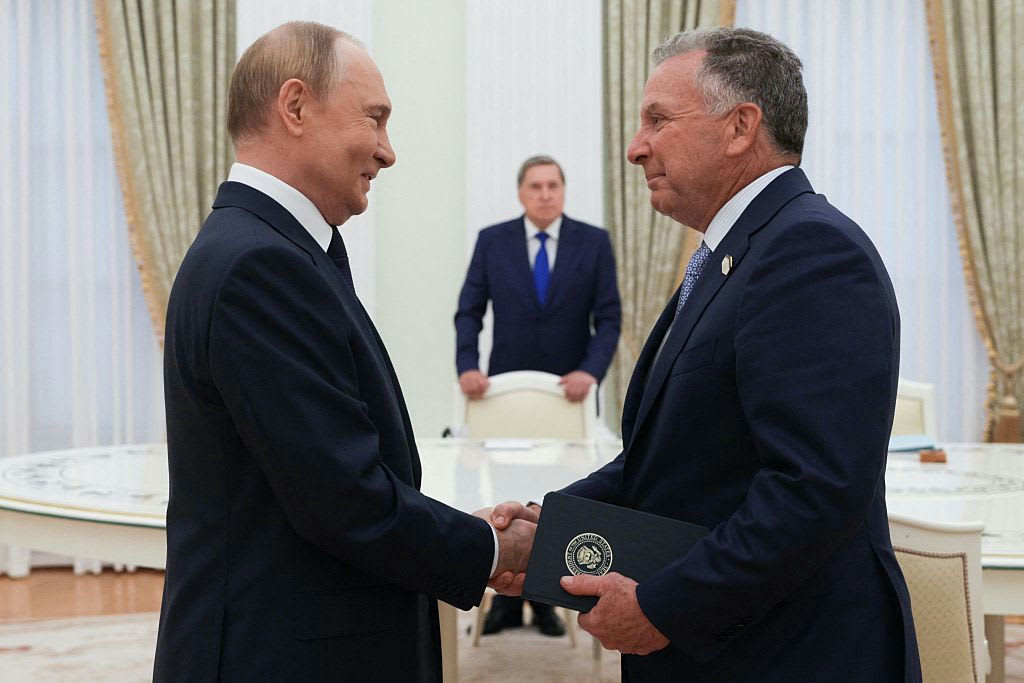Lt. Col. Alexander Vindman says West must not bend to Putin's "nuclear saber-rattling"
As Ukraine continues to fight off Russian invaders, the sanctions imposed on Russia by the West are already having a devastating impact on that nation's economy. But they have not stopped President Vladimir Putin yet. Over the weekend he put his nuclear forces on high alert, raising new fears of an escalation.
On Monday retired Army Lieutenant Colonel Alexander Vindman, who served as the European affairs director for the National Security Council, told "CBS Mornings" that this latest development is familiar to Kremlin watchers.
"Vladimir Putin is hoping through his nuclear saber-rattling that he'll put us back on our heels, get us to be deeply concerned about the potential for nuclear escalation. But of course, for those in government, they understand that … we've had to deal with this threat throughout the Cold War, throughout the Soviet period, for generations," Vindman said, "and that we had to respond to Russia's belligerence and stay firm in supporting our national security interests. That's part of it, is just not to bend because of the nuclear saber-rattling, because we've seen it before.
"But the other thing we need to do is, we need to indicate that his actions have severe consequences. On the economic scale, we've never executed anything like this. For all intents and purposes, Russia's economy is isolated. There will still be some energy flows because Europe relies on them, but it's an isolated economy. It's going to have a devastating impact."
Vindman said, for the West, a particularly acute need is the provisioning of lethal assistance for Ukraine's degraded air force, as well as providing anti-tank capabilities, air defense capabilities and unmanned aerial vehicles (UAVs) to strike deep targets.
"That's where we need to go before we start to force Vladimir Putin to thinking about off-ramps," he said. "He's the one that initiated this war. He's the one that's going to make the first signals that he's willing to go ahead in a different direction. But we're far from that point still."
"CBS Mornings" co-host Tony Dokoupil asked, "I hear you saying we shouldn't be concerned [about nuclear saber-rattling], he's done this in the past. But there are others saying that he is not the same Vladimir Putin he was five, ten years ago; he's changed. What makes you think from where you're sitting that he's still a rational actor?"
"Yeah, well, he hasn't changed," Vindman replied. "He's not a madman. He's not suicidal. He's been actually incrementally increasing his aggression against the West for years. He used nuclear-grade materials to poison adversaries, chemical weapons. He's targeted U.S. forces with bounties. He's conducted multiple wars. The problem is that he hasn't faced a significant reaction. Now he's facing that reaction. This is something that he's unaccustomed to. But he's not a madman, and – once he realizes that this legit, this has major bite, and he's not achieving his military objections in Ukraine – he's going to look for other ways to achieve his aims in the long run."
- Inside the mind of Vladimir Putin
- Defending against "a dictator on the prowl"
- Europe and U.S. brace for economic fallout from Russian invasion of Ukraine
- EU closes airspace to Russian planes, bans pro-Kremlin media outlets and pledges arms to Ukraine
Last week in an op-ed in the Atlantic ("America Could Have Done So Much More to Protect Ukraine"), Vindman wrote, "Like every administration since the end of the Cold War, Joe Biden's fell victim to wishful thinking about the Kremlin's ambitions in Ukraine and Russian President Vladimir Putin's basic commitment to international norms."
Vindman told "CBS Mornings" that allowing Putin to act was a failure of multiple U.S. administrations: "Twenty years of failed policy. And what that did was, that kind of put blinders on to the broader landscape with regards to Ukraine. So, what you have is the administration kind of looking at Russia through a soda straw. Within that soda straw, the Biden administration's leaned very far forward. They are on the leading edge of these sanctions, they're now providing weapons. But there is more that could have been done.
"We could see now the catastrophe that this war is, and that the likelihood of being a limited [war] and the U.S. stays out cleanly, or Europe stays out cleanly, is unrealistic. My critique was mainly to learn from our mistakes, to stop an incrementalist approach, and to really start providing the kind of support to Ukraine that they need. That's not the $350 million that the U.S. promised, but an order of magnitude bigger -- $3.5 billion."
"Many people are in awe of the resolve and the determination of the Ukrainian people," co-host Gayle King said. "Based on what you know about Ukraine and its people, what do you make of how they're handling this?"
"It's amazing," he said. "They are a shining example for the entire world. Certainly our own population here in the U.S. is drawn to it. We always love the underdog story. But it's more than that. This is a resilient, tough people fighting for their freedom, fighting for democracy, fighting for their homes. And the Russians were certainly not prepared for it. They had some false assumptions, and they're being ground down on those battlefields in Ukraine.
"But it's an amazing people, a population that I've gotten a chance to know that is in my blood also for that matter. And I'm very, very proud to call myself a Ukrainian American."
- Ukrainians united in their resolve to stop Putin's war machine
- Russian advance slowed by Ukrainian resistance and logistical setbacks, U.S. defense official says
- The long history of Russia's efforts to subjugate Ukraine
See also:
